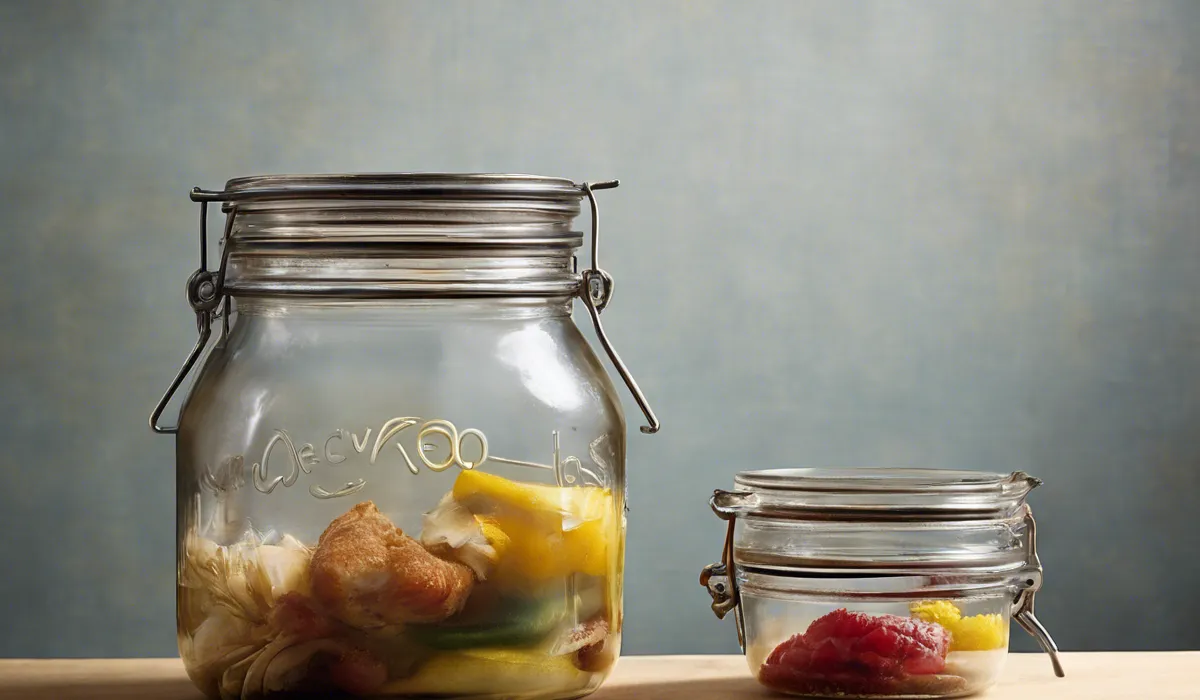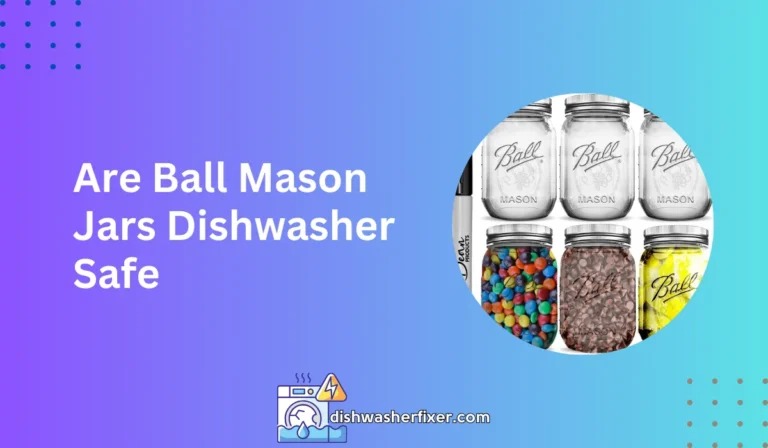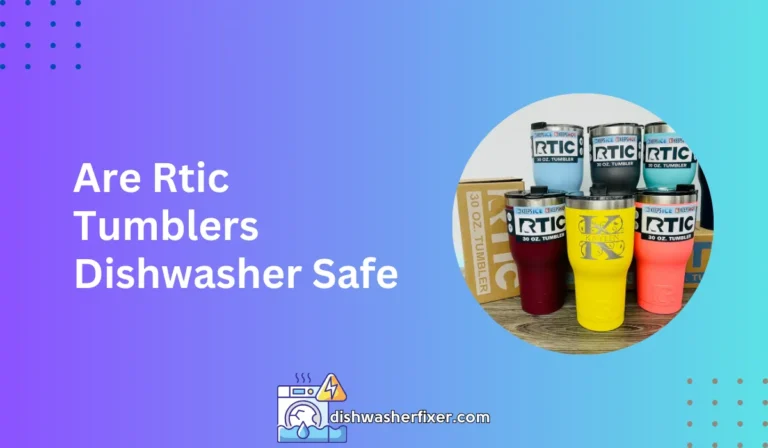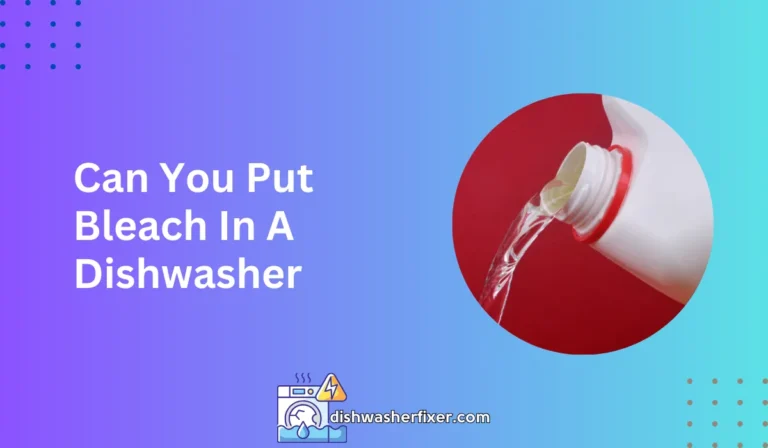Are Weck Jars Dishwasher Safe? Unveiling the Truth!
Weck jars are dishwasher safe. You can clean both the glass containers and lids in your dishwasher. However, it’s recommended to hand wash the rubber gaskets and clips to maintain their integrity. Ensure jars are placed securely to avoid breakage during the wash cycle.
Understanding Weck Jars

Brief History of Weck Jars
Weck jars have a storied history, dating back to the early 20th century when they were first introduced by the German company J. WECK & Co.
These jars were designed for the canning process, an essential practice for preserving food before the widespread availability of refrigeration.
The Weck canning system became popular due to its innovative glass lid and rubber ring sealing mechanism, which made it easier for home users to safely preserve their food.
Design and Materials Used in Weck Jars
Weck jars are distinctive for their simplistic yet functional design. They are made of high-quality, durable glass that can withstand temperature fluctuations, making them suitable for canning and storing various food items.
The clarity of the glass also allows for easy viewing of the jar’s contents. Weck jars are topped with a glass lid, held in place by stainless steel clamps during the canning process and sealed with a natural rubber gasket to ensure airtightness.
Different Types of Weck Jars and Their Uses
There are several types of Weck jars, each designed for a specific use. Tulip jars, for instance, are ideal for jams, jellies, and preserves, while the cylindrical jars work well for pickles and asparagus.
The mold jars, with their wide mouths, are perfect for layered salads or storing leftovers. No matter the type, Weck jars are versatile and can be used for canning, storage, and even as decorative elements in homes and commercial settings.
Dishwasher Safety of Weck Jars

Manufacturer’s Guidelines on Dishwasher Use
The manufacturer of Weck jars confirms that their glass jars and lids are dishwasher safe. This means you can conveniently clean them along with your other dishes.
However, it is important to follow the manufacturer’s guidelines to ensure the jars and lids are not damaged during the cleaning process.
The Impact of Dishwasher Cycles on Glass Integrity
While Weck jars are made to withstand high temperatures, repeated exposure to aggressive dishwasher cycles can take a toll on the glass over time.
Sudden changes in temperature and harsh detergents may cause the glass to become brittle and more prone to breaking.
Therefore, it is crucial to use gentle dishwasher settings and to avoid extreme temperature changes to maintain the integrity of the glass.
How to Place Weck Jars in the Dishwasher Safely
To prevent breakage during the wash cycle, Weck jars should be placed securely on the dishwasher rack. Ensure that the jars do not touch each other or the dishwasher walls, as the movement during the cycle could cause them to knock together and potentially crack or chip.
Special Considerations for Lids and Rubber Gaskets
While the glass containers and lids can go in the dishwasher, the rubber gaskets and stainless steel clamps should be hand washed. The high heat of the dishwasher could degrade the rubber, affecting its ability to create an airtight seal.
Similarly, the clamps could become discolored or damaged by prolonged exposure to water and heat. Hand washing these components will help maintain their functionality and longevity.
Best Practices for Cleaning Weck Jars

Hand Washing vs. Dishwasher: Pros and Cons
Hand washing Weck jars is the gentlest cleaning method, reducing the risk of thermal shock and exposure to harsh detergents. It also allows for a thorough cleaning of the rubber gaskets and clamps, which are not dishwasher safe.
However, hand washing can be more time-consuming and less convenient than using a dishwasher.
On the other hand, dishwashers offer the advantage of convenience and the ability to clean multiple jars simultaneously, but the risk of damaging the jars is higher.
Tips for Extending the Lifespan of Weck Jars Through Proper Cleaning
To extend the lifespan of Weck jars, always handle them with care, especially when they are full or hot. Use gentle detergents and soft sponges to prevent scratching the glass.
Dry the jars thoroughly after washing to prevent water spots and mineral buildup. Additionally, inspect the rubber gaskets regularly for any signs of wear and replace them as necessary to ensure a proper seal during canning.
Alternatives to Dishwasher Detergents for Preserving Weck Jars’ Quality
For those looking to avoid the harsh chemicals found in some dishwasher detergents, there are alternatives that can help preserve the quality of Weck jars.
Baking soda and vinegar are natural cleaning agents that can effectively clean glass jars without causing harm. Simply create a paste with baking soda and water to scrub the jars or use a vinegar solution for a rinse to help remove residue and disinfect the jars.
FAQs About Dishwasher Safety of Weck Jars
Can Weck jars be washed in a dishwasher?
Yes, Weck jars and their lids are dishwasher safe.
Should the rubber gaskets of Weck jars be placed in the dishwasher?
No, it’s recommended to hand wash the rubber gaskets to maintain their integrity.
Can the clips of Weck jars be cleaned in a dishwasher?
It’s recommended to hand wash the clips of Weck jars instead of using a dishwasher.
How should Weck jars be placed in the dishwasher?
Weck jars should be placed securely in the dishwasher to avoid breakage during the wash cycle.
Is there any precaution to take when washing Weck jars in the dishwasher?
Ensure jars are placed securely to prevent them from moving and breaking during the wash cycle.
Final Thoughts
Weck jars and their lids are safe for dishwasher cleaning, ensuring convenience and hygiene.
To preserve the durability of the rubber gaskets and clips, it’s advisable to wash them by hand. When using the dishwasher, take care to position the jars stably to prevent any damage during the cycle.





